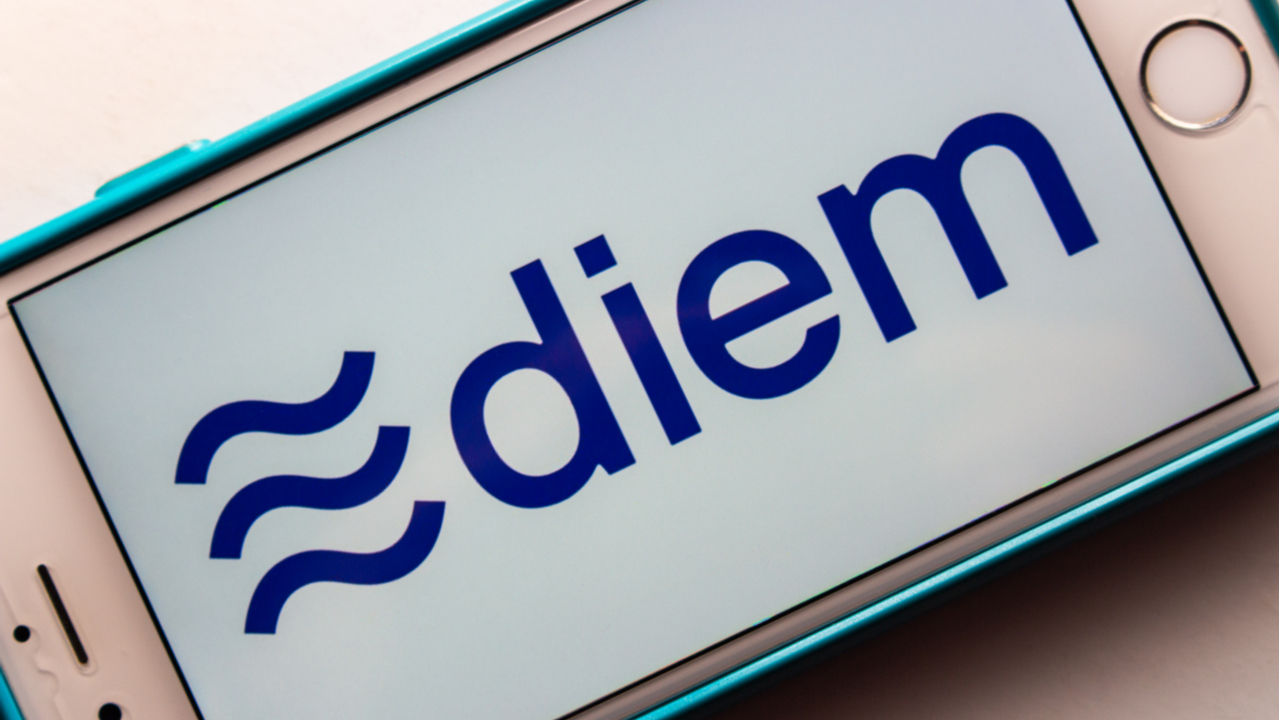 Aptos, a new startup created by some of Meta’s former employees involved in the Diem project, has announced it has raised $200 million for its upcoming goal of creating a scalable blockchain system. The investment, conducted in a strategic funding round, involves some well-known VC names, including Tiger Global, Katie Haun, Multicoin Capital, 3 Arrows […]
Aptos, a new startup created by some of Meta’s former employees involved in the Diem project, has announced it has raised $200 million for its upcoming goal of creating a scalable blockchain system. The investment, conducted in a strategic funding round, involves some well-known VC names, including Tiger Global, Katie Haun, Multicoin Capital, 3 Arrows […]
“Since departing Meta (formerly Facebook) we have been able to put our ideas into motion, ditch bureaucratic red tape, and build an entirely new network,” Aptos stated.
Former Meta employees and key players behind the firm’s defunc stablecoin project Diem have raised $200 million to expand a new project dubbed “Aptos.”
Aptos was cofounded by former Novi — Meta’s crypto unit — strategic partnerships lead Mo Shaikh and tech lead Avery Ching. The duo arenow serving as the CEO and CTO for the new firm. Both left the company in December, prior to Diem being sold to Silvergate Capital in February this year.
The team is building a decentralized Layer 1 blockchain that is partly based on Move, the coding language initially developed for Diem. The company is now in the process of growing its developer ecosystem and attracting projects to the blockchain, which it touts will be a cheap, secure and scalable network.
According to a March 16 announcement, Aptos’ $200 million strategic funding round was led by capital venture giant Andreessen Horowitz (a16z), along with backing from top firms such as Three Arrows Capital, FTX Ventures, Paxos and Coinbase Ventures.
The funding will be used to hire new staff and to support “companies, brands and builders” who are looking to develop projects on the Aptos blockchain, with the startup teasing that several DeFi, NFT, Web3, social media and payments projects are already in the works.
Speaking with TechCrunch, Aptos refused to disclose a specific valuation but suggested that it is “well off into the unicorn territory” of around $1 billion.
Alongside the funding announcement, Aptos has also launched a public devnet with an open-source codebase. The team told the publication that big names such as Anchorage, Binance and Coinbase have been providing guidance and contributing code for the devnet. The announcement stated:
“Later in Q2, there will be an incentivized testnet to help scale the network and stress test it as it marches toward mainnet. We invite validators and other infrastructure providers to join our community now in anticipation of that.”
Aptos expects Mainnet to launch in Q3 later this year, giving developers roughly six months to build projects before the network is live to the public.
Related: Vale Diem: How Facebook’s ambitious stablecoin project came to an end
In a blog post late last month, Aptos emphasized that the focus of its blockchain is based on “absolute safety, extensible scalability, and credible neutrality,” while being able to work on its ideas without intense scrutiny from regulators like in the case of Diem:
“Since departing Meta (formerly Facebook) we have been able to put our ideas into motion, ditch bureaucratic red tape, and build an entirely new network from the ground up that brings them to fruition.”
“Aptos is using Move, the safe and reliable language originally developed for Diem. The ideas we conceived then are still relevant and will serve as an important foundation for a safe, scalable, upgradable Web3. Our plans for decentralization and permissionless access are progressing quickly and will be developed in the open,” the post added.
 Silvergate Capital, an investment firm that is the parent company of the Silvergate Bank, acquired the technology and assets of Diem, the formerly Facebook-backed stablecoin payment system. The payment totaled $182 million. The technology and assets acquired will reportedly be used for the launch of a Silvergate branded stablecoin. Silvergate Purchases Diem Operations Silvergate Capital, […]
Silvergate Capital, an investment firm that is the parent company of the Silvergate Bank, acquired the technology and assets of Diem, the formerly Facebook-backed stablecoin payment system. The payment totaled $182 million. The technology and assets acquired will reportedly be used for the launch of a Silvergate branded stablecoin. Silvergate Purchases Diem Operations Silvergate Capital, […]
Dorsey said that although Facebook probably started Diem for “the right reasons,” it should’ve used an open-ended protocol like Bitcoin rather than attempting to create its own currency.
Twitter founder Jack Dorsey said that Meta’s failed cryptocurrency project Diem was “wasted effort and time,” and it should have focused its efforts on “making Bitcoin more accessible for everyone.”
MicroStrategy CEO Michael Saylor interviewed Dorsey on Tuesday at his company’s “Bitcoin for Corporations 2022” conference about how corporations could integrate and use Bitcoin (BTC).
Dorsey said that although Facebook probably started Diem for “the right reasons,” it should’ve used an open-ended protocol like Bitcoin rather than attempting to create its own currency.
“This whole thing with Libra and then Diem, I think there’s a ton of lessons there,” Dorsey told Saylor. “Hopefully they learned a lot, but I think there was a lot of wasted effort and time.”
His criticism of Twitter’s more popular and successful social media counterpart should perhaps come as no surprise. Since stepping down from his role as Twitter CEO in Nov last year, Dorsey has since made is clear that he plans to make Bitcoin the focus of his new company, Block (formerly known as Square.) Block allows users to purchase Bitcoin through mobile payments service, Cash App.
“Those two or three years or however long it's been could've been spent making Bitcoin more accessible for more people around the world.”
Dorsey added that making BTC more accessible would also benefit many of Meta’s products, specifically referring to Facebook Messenger, Instagram and WhatsApp.
“We have this open network right now. And it's usable. It's not accessible to everyone, but it’s usable. The easier we make it, the faster we make it, the more approachable we make it, it's going to better everything. Including everything Facebook intended to do with Libra.”
In 2019, Facebook (now branded as Meta Platforms) released the white paper for Libra, its long-awaited crypto-based financial infrastructure project today. However, following a slew of regulatory hurdles and bad PR that forced the project to rebrand to Diem in Dec 2020, it ultimately came to an untimely end.
Related: Zuckerberg's Diem reportedly weighing sale after stablecoin plans falter
Meta officially announced it would be selling Diem’s intellectual property and other assets to Silvergate Capital Corporation on Jan 31 2022 for the aggregate value of $182 million, officially handing over the ropes yesterday on Feb 1.
On Jan 12, a Cash App upgrade integrated the Bitcoin Lightning Network, allowing faster and cheaper BTC transfers using the layer-two (L2) payments protocol.

It looks like Meta is planning to jump ship, with inside sources saying that the crypto initiative is trying to sell its assets.
Meta-backed crypto initiative “Diem” is reportedly trying to sell its assets, seemingly calling time on Facebook founder Mark Zuckerberg’s grand ambitions for a stablecoin to act as the internet’s currency.
Diem — which was previously known as Libra — is Meta Platform’s cryptocurrency initiative. According to insider sources speaking with Bloomberg, it is considering selling assets to return capital to its investors.
The sources said that Diem is in discussions with investment bankers to determine the best way to sell its intellectual property and cash out on whatever value the project has maintained.
It’s unclear how the company will be valued, and there is no guarantee that they will be able to find a buyer. According to the source, about a third of the venture is owned by Meta. The remainder is owned by members of the association and partners, which include Coinbase Global, Uber and Shopify.
Diem has sparked no shortage of controversies in its short time of existence since launching on June 18, 2019. Libra, as it was known at the time, intended to be maintained by a Switzerland-based consortium of companies called the “Libra Association.”
However, news of the project’s launch triggered immediate pushback from the U.S. government and regulators around the world, who cited concerns regarding privacy and monetary sovereignty. Both Facebook CEO Mark Zuckerberg and former Libra head David Marcus testified before the House Financial Services Committee.
Related: New name, old problems? Libra’s rebrand to Diem still faces challenges
At one July hearing in 2019, Senator Sherrod Brown of Ohio asked Marcus, "do you really think people should trust Facebook with their hard-earned money?"
“If our country fails to act, we could soon see a digital currency controlled by others whose values differ radically from ours,” Marcus responded.
Deterred by regulatory scrutiny, many partners began to abandon the project altogether, eventually including Marcus himself. It was at this point it rebranded to Diem, hoping to shake off the mass regulatory panic that drowned out Libra’s initial announcement.

In explaining his decision to leave Meta, David Marcus said that his entrepreneurial DNA had been nudging him “for too many mornings in a row to continue ignoring.”
David Marcus, the head of Meta’s cryptocurrency and fintech unit Novi, will step down from his role by the end of 2021.
Taking over from Marcus will be Stephane Kasriel, the former CEO of Upwork who has been at Meta, formerly known as Facebook, since August 2020.
Marcus announced the decision via a Dec. 1 tweet, noting that he had made the “difficult decision” to leave the firm by the end of this year. The exec didn’t go into detail about what his next move would be, but hinted that it may be something “new and exciting” that he builds himself:
“While there’s still so much to do right on the heels of launching Novi — and I remain as passionate as ever about the need for change in our payments and financial systems — my entrepreneurial DNA has been nudging me for too many mornings in a row to continue ignoring it.”
Marcus has worked at the company since 2014, initially taking up a role in the firm’s messenger service branch before shifting his focus to financial services in 2018 by founding Meta’s digital wallet Novi (which also bears the same name as the fintech unit) along with co-founding the beleaguered Diem stablecoin project which now operates independently.
Today is bittersweet, sad to see @davidmarcus leave @Meta, grateful for his leadership and belief in me as the new Head of Novi. https://t.co/nxDNlywqVw
— Stephane Kasriel (@skasriel) November 30, 2021
Marcus joins a list of former execs of the social media giant's crypto unit who have left the firm over the past 12 months, including fellow Diem co-founders Morgan Beller and Kevin Weil who both took up new roles at NFX and Planet respectively.
Related: Facebook’s centralized metaverse a threat to the decentralized ecosystem?
Novi and Diem have faced intense scrutiny from local and international regulators due to their connections with Facebook, with neither project yet to fully launch during that time frame.
In October, a group of U.S. senators including crypto skeptic Elizabeth Warren sent a letter to Facebook calling on the firm to discontinue its wallet project just hours after Novi launched a pilot in the United States and Guatemala in partnership with Coinbase.
Now that the future of Novi is in someone else's hands, Marcus reflected on his time and said that his proudest achievement was assembling a “kickass team” over the past three years.